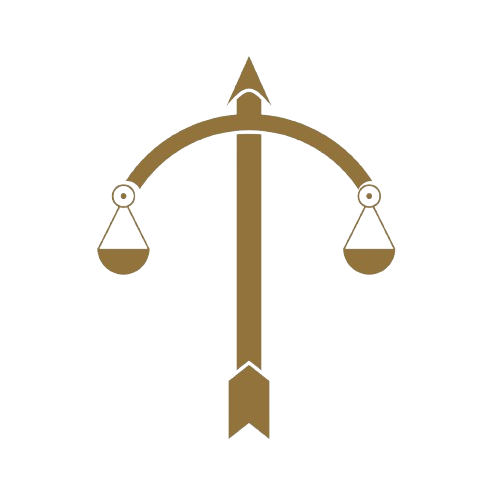The Future of Sanctions Law: Balancing Power and Principle
Sanctions are meant to uphold international law - but as courts, governments, and intelligence agencies clash over how they’re applied, questions of fairness and power have become impossible to ignore.
Sanctions have become the go-to tool of modern diplomacy, a way to hold wrongdoers accountable without resorting to military force. But since Russia’s invasion of Ukraine, their use has exploded in recent and it’s lead to something interesting. Courts are getting involved in diplomacy in ways they never did before. What used to be a straightforward executive decision has turned into a complex legal battleground. The debate now isn't just about who gets sanctioned, but whether the entire process passes muster under international law.
From Policy Tool to Legal Doctrine
There was a time when sanctions were purely political. A state would slap restrictions on another country or freeze someone's assets, and that was that. The law simply rubber-stamped the decision and now those days are gone.
Today, courts- both domestic and international- are increasingly being asked to scrutinise whether sanctions meet basic standards of fairness and evidence. As the Law Society of England and Wales points out in its guidance, the UK imposes sanctions for purposes including "maintaining international peace and security." Fair enough. But as Iskander Fernandez, Alexander Scard and Rob Stevenson noted in the Law Gazette, we're walking a tightrope here: "Sanctions and the rule of law – a fine balancing act." The irony is hard to miss, we're using sanctions to enforce the rule of law, but if we're not careful, the way we apply them could undermine that very principle.
Former UN Secretary-General Kofi Annan once warned about this paradox: "Sanctions are a necessary middle ground between war and words... but they must be carefully designed to minimise humanitarian impact and maximize political effectiveness." That balance is proving harder to strike than ever.
But not everyone agrees this judicial scrutiny is helpful. John Bolton, the illustrious former US National Security Advisor, has argued forcefully that "sanctions are fundamentally a foreign policy tool, not a legal proceeding. When courts start second-guessing diplomatic decisions based on intelligence they can't fully access, they're undermining national security." And there we have to admit, he has got a point—there is a tension between transparency and effectiveness.
Judicialisation and the Question of Evidence
Here's where things get tricky. Sanctions are meant to prevent harm, not punish crimes. But they often rely on intelligence reports or diplomatic sources that can't be made public. When courts try to review these decisions, they're stuck between a rock and a hard place: how do you ensure fairness when the evidence is classified?
The UK government's recent cross-government review tried to square this circle, stating that "SAMLA provides a transparent and robust system of legal challenge and review." The report concluded that judgments show "we are upholding our approach of ensuring sanctions are well-reasoned, in line with the law and justified." That sounds reassuring, but then you dig deeper into what it means in practice.
Kenneth Roth, former executive director of Human Rights Watch, has been blunt about this problem arguing that when governments impose sanctions based on secret evidence that can't be challenged, they're asking us to take justice on faith. He's right. When legal instruments operate on unverifiable information, we're building a system that runs on trust rather than transparency. And that's a shaky foundation.
Yet former CIA Director Michael Hayden offers a counterargument and he often argues that in the intelligence world, sources and methods are everything. Revealing evidence in court doesn't just compromise one case- it can get people killed and shut down collection capabilities for years. Sometimes protecting intelligence has to take precedence. This is a stark reminder that we're not just talking about abstract legal principles here. Real operational security is at stake.
The question becomes: can we design a system that protects both? Special advocates with security clearances reviewing classified material? Sealed proceedings with limited disclosure? Or do all compromises simply create the illusion of fairness without the substance?
Economic Sovereignty and Extraterritorial Reach
But wait—it gets more complicated. Sanctions don't just affect their intended targets. They create ripple effects that can sweep up completely uninvolved parties halfway around the world. This is especially true with secondary sanctions, where major economies essentially force everyone else to comply with their policies or face consequences.
As Christoph De Preter in Le Monde put it starkly: "European citizens under US sanctions are being erased economically and socially within the EU." Think about that for a moment. People with no direct connection to a conflict are finding themselves shut out of the financial system because of another country's foreign policy decisions.
Legal scholar Anu Bradford, who coined the term "Brussels Effect," has observed something similar from a different angle: "When powerful jurisdictions extend their regulatory reach extraterritorially, they're not just enforcing their own laws—they're effectively legislating for the world." That's exactly what's happening with sanctions. One state's domestic legal framework becomes de facto international law, whether other countries like it or not.
But US Treasury officials defend this approach vigorously. Former Treasury Secretary Jacob Lew argued: "The US dollar's role as the world's reserve currency isn't just an accident of history—it comes with responsibilities. When we use sanctions to cut off terror financing or prevent nuclear proliferation, we're using our financial leverage to protect global security. That's not imperialism, it's leadership."
Daniel Drezner, a sanctions scholar at Tufts University, tries to split the difference: "Extraterritorial sanctions work precisely because they're powerful and far-reaching. The question isn't whether they violate some abstract notion of sovereignty—sovereignty has always been about power. The question is whether they achieve their policy goals without creating so much backlash that they undermine American influence in the long run."
So who's right? Is this responsible use of economic power, or a form of legal imperialism that will eventually provoke a backlash?
Restoring Integrity in Sanctions Adjudication
So what's the solution? The legitimacy of any legal system-sanctions included-depends on some bedrock principles: solid evidence, proportionate responses, and genuine independence. Courts need to make sure that measures taken in the name of global order don't end up destroying the legal coherence they're supposed to protect.
As the Law Society guidance reminds firms, they need to conduct sanctions risk assessments and understand "who their clients are … who they are owned/controlled by … and potentially, the counter-parties and any third parties providing funding." That's not just compliance box-ticking—it speaks to a deeper need: sanctions must be grounded in clear, identifiable legal criteria, not vague political definitions that shift with the wind.
Judge Rosalyn Higgins, former president of the International Court of Justice, has observed that the rule of law in international affairs requires that states be willing to accept legal restraints on their own behaviour, even when politically inconvenient. That's the standard we should be holding sanctions regimes to. It means insisting on demonstrable grounds for designation, periodic reviews that actually mean something, and a willingness to push back against executive overreach- yes, even when it's awkward or unpopular.
But realists push back hard on this vision. Robert Kagan, the foreign policy analyst, has suggested that the problem with legalists is they want to tie the hands of democracies while autocracies ignore the rules entirely. When you're facing down Russia or China, worrying about procedural niceties is a luxury we can't afford. He argues that the West's advantage is its economic power-we should use it.
And economist Nicholas Mulder, author of "The Economic Weapon," adds historical perspective: "We've been having this exact debate since the League of Nations first weaponized economic pressure a century ago. The tension between effectiveness and legality has never been resolved because it's probably irresolvable. Each generation has to decide how much legitimacy they're willing to sacrifice for coercive power."
Law as a Limiting Force
The expansion of sanctions reveals an age-old tension: the struggle between law and raw power. Used wisely, sanctions can promote accountability and prevent atrocities. Applied carelessly or cynically, they become tools of coercion without constraint—might dressed up in legal language.
Martti Koskenniemi, one of international law's leading theorists, captures the dilemma by saying that international law constantly oscillates between being an apology for power and a utopian demand for justice. The challenge is to keep it anchored in principle rather than letting it drift entirely into either extreme.
Yet Anne-Marie Slaughter, former State Department policy planning director, insists we're looking at this wrong saying that the real debate isn't law versus power- it's about what kind of international order we're building. Sanctions regimes, with all their flaws, represent an attempt to create accountability without violence. Yes, they're imperfect. Yes, powerful states have more leverage. But what's the alternative? Going back to an era where might made right with no legal veneer at all?
She's got a point, but so does the other side. Tom Ruys, a professor of international law at Ghent University has warned us that every time we bend legal principles to accommodate political expediency, we weaken the entire edifice. He says that today it's sanctions against 'bad actors' everyone agrees on but tomorrow it's economic warfare dressed up as legal compliance. The precedents we set now will haunt us.
Where Do We Go From Here?
For us here at the Legal Integrity Project, the path forward requires acknowledging this tension honestly rather than pretending it doesn't exist. The future of sanctions law must rest on integrity, not expediency- but we also need to recognise that perfect solutions don't exist.
Courts can't become passive validators of whatever governments want to do. Their job isn't to echo foreign policy= it's to uphold the standards that give international law credibility in the first place. But they also can't be so divorced from security realities that they make effective action impossible.
Maybe the answer lies in what legal philosopher Lon Fuller called "procedural natural law"- not perfect outcomes, but honest processes. Demonstrable grounds for sanctions, even if some evidence remains classified. Genuine periodic review, not rubber-stamping. Independent judicial oversight with appropriate security accommodations. Appeal mechanisms that actually work.
It won't satisfy the purists on either side. The realists will say it's too constraining. The legalists will say it's too permissive. But perhaps that's exactly where the balance should be- uncomfortable for everyone, which might mean it's getting something right.
Only by maintaining that tension can legal authority remain what it should be: a check on power, not just another tool for exercising it. In a world where economic might increasingly substitutes for military force, that distinction matters more than ever. The question is whether we have the wisdom- and the courage- to preserve it.

